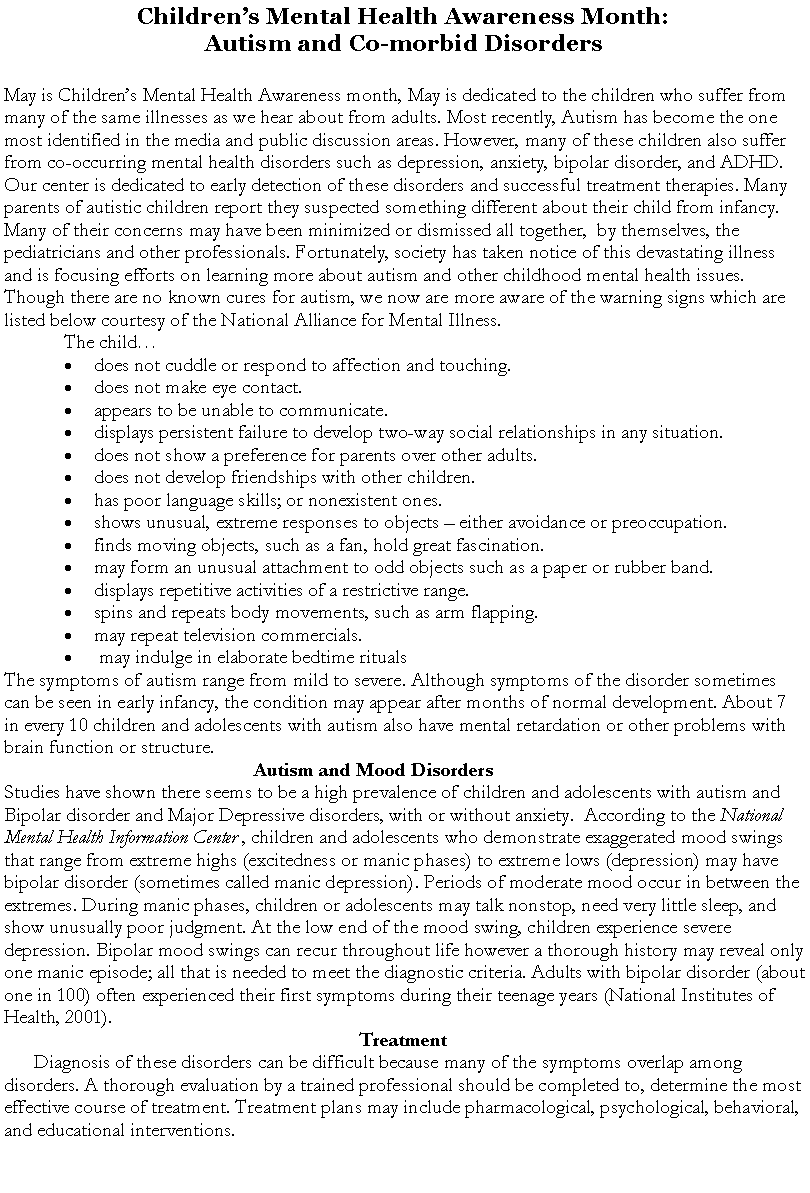


|
May 2009 |
|
Issue 6 |
|
Carolina Center for Counseling & Behavioral Interventions, LLC |
Contact Information304 A North East Main Street Simpsonville, SC 29681
Phone: 864 - 963 - 4028 Fax: 877-201-4878 |


|
· Manic episodes (unusually high energy/euphoric mood/pressured speech and thoughts) · Excessive worry and compulsive behaviors · Angry or explosive outbursts · Violent behavior · Hallucinations (seeing, feeling, or, hearing things that are not real) · Delusional thinking |
|
· Depressed mood · Complaints of feeling tired or bored · Thoughts of death or suicide · Crying episodes for little or no reason · Irritability · Decreased interest in usual activities · Irregular or abnormal sleeping patterns or disturbances
|